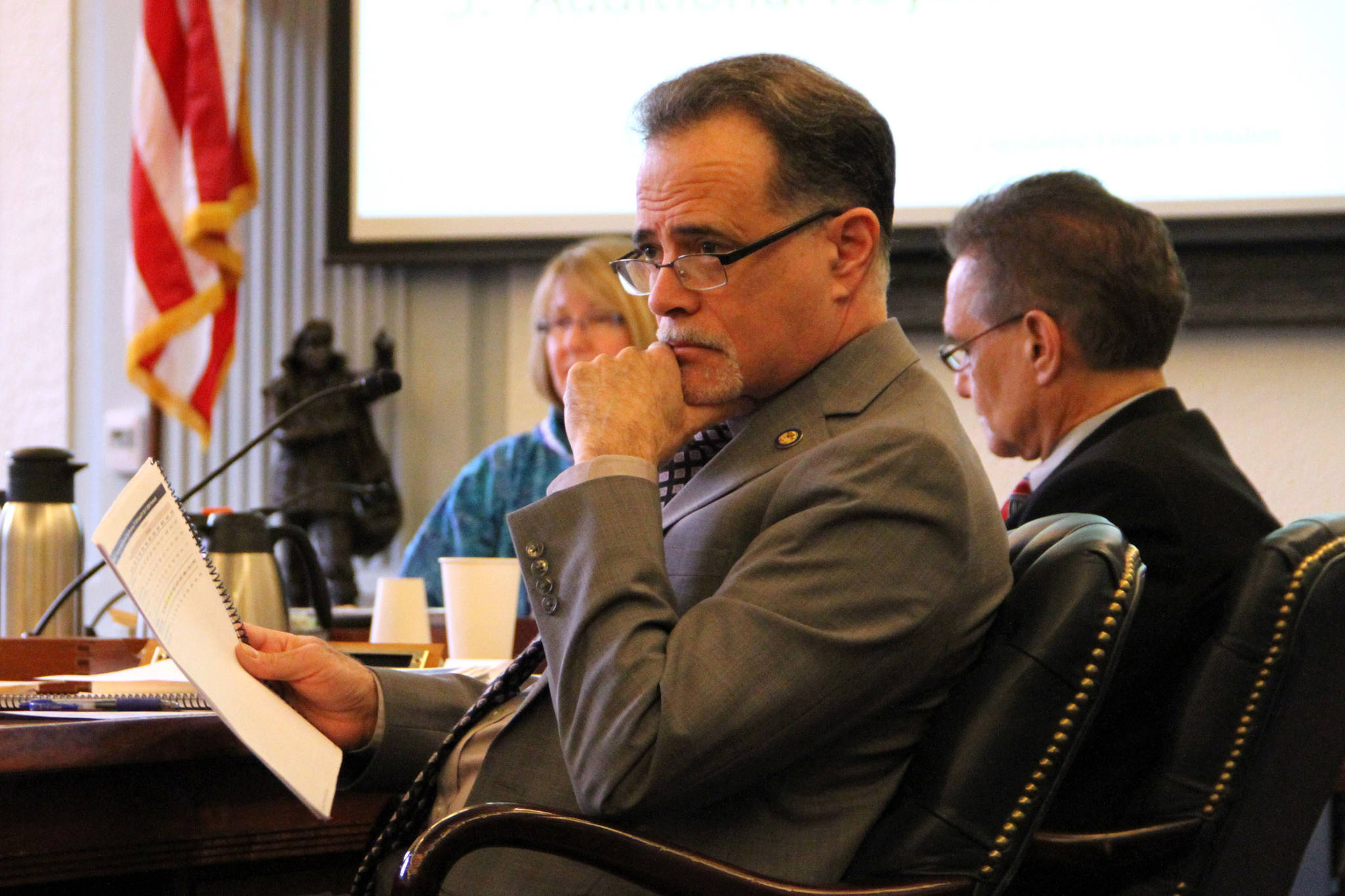The Alaska Legislature may have finally come to a consensus on one of their top priorities this session, although it has come long after the eleventh hour. After several weeks of debate, a final version of HB 49 — seen as a sweeping repeal-and-replace of the controversial SB 91 crime bill enacted several years ago — is being drafted by a conference committee that sought to reconcile the differences between the House and the Senate’s version of the legislation. The Senate’s version of the bill, which passed the Senate unanimously, was seen as tougher on crime than the House’s version, but was rejected by the House 18-22 on Tuesday.
Wednesday was the last day of regular session for legislators, but Gov. Mike Dunleavy declared a special session Wednesday evening to give legislators more time to deal with the crime bill, as well as issues surrounding the budget and the Alaska Permanent Fund dividend.
The conference committee for HB 49 consisted of three House members, Chuck Kopp, R-Anchorage, Matt Claman, D-Anchorage, and Lance Pruitt, R-Anchorage, and three senators, Shelley Hughes, R-Palmer, Mike Shower, R-Wasilla, and Bill Wielechowski, D-Anchorage. These six legislators negotiated through Wednesday evening and Thursday morning and agreed on a compromised bill Thursday afternoon.
Rep. Gary Knopp, R-Kenai, said that the house is poised to vote on the conference committee’s bill Monday afternoon and is confident that the legislation will pass this time around.
“It’s a slam dunk,” Knopp said. “We’re not going to get a better compromise than this.”
Knopp was part of the Majority Coalition in the House that rejected the Senate’s version of the bill on Tuesday. Knopp argued that the House members did not have time to look at the legislation and added that he was not comfortable voting in favor of a bill before he had been given a chance to read through it. He also criticized the Senate’s bill for the potential financial costs associated with it, including an estimated $50 million dollars to reopen the correctional facility in Palmer if the number of inmates increases as expected.
Sen. Peter Micciche, R-Soldotna, agreed that the compromise was fair, saying that nothing was given up by the Senate in the way of public safety. One compromise Micciche noted was that the Senate’s version of the bill included completely eliminating the pretrial risk assessment program, and the conference committee agreed to keep the program but to make it one of 12 different factors that determine whether someone is released before their trial. Currently, a pretrial risk assessment is required with every case to determine if someone can be released on their own recognizance before their trial.
Last Wednesday, an amended version of HB 49 passed the House of Representatives 24-14 and was sent to the Senate. Those in the House Republicans caucus voted against the House version of the bill, and several of the amendments introduced by caucus members were voted down or nullified by the House Majority, including one amendment from Rep. Sara Rasmussen, R-Anchorage, that would have removed marriage as a defense in certain cases of sexual assault.
Rep. Ben Carpenter, R-Nikiski, voted against the House version of the bill that passed last week, characterizing it as “repeal-and-replace lite.” Carpenter said that while he didn’t think the House version included anything that would negatively impact public safety, it was not a big enough step in the right direction and included several provisions that would have incentivized the delaying of criminal trials so that potential felons could earn time off their sentence while still in the pretrial phase. Carpenter said on May 9 that he expected the Senate to make changes that he wanted to see and was proven right, voting in favor of the Senate version along with the rest of the House Republican Caucus on May 14.
The conference committee’s version of HB 49 is expected to be voted on by the House on Monday and the Senate on Tuesday. If approved by both chambers, it will be sent to the governor’s desk, where Dunleavy is expected to sign it into law.
Editor’s note: Rep. Ben Carpenter is a cousin of reporter Brian Mazurek.

